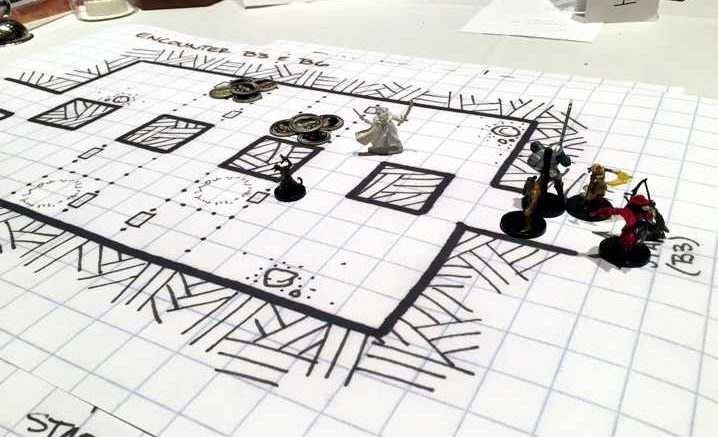Most Dungeons & Dragons DMs spend at least a few hours a week preparing for their next session. Whether it’s reviewing an Adventure Path or building potential encounters for their parties to overcome, most DMs do at least a little bit of preparation before their players sit down at the table.
Earlier this week, a Tweet from a popular D&D Twitter account launched a lengthy online conversation about the value of preparation versus “overpreparing,” or spending too much time getting ready for your D&D game. As with all things D&D, there’s no “right” method to preparing a session, but DMs might find more value in certain types of preparation than others.
There are different types of preparation that a DM can do for Dungeons & Dragons. A DM can spend their time focusing on the immediate future – planning out potential encounters that the player might face in the next session or two. There’s also more long term planning, focused more on the overarching plot of a D&D campaign. A DM can also spend their time worldbuilding, crafting the lore, geography, and background that forms the foundation of your campaign and explains why your world is the way it is. There’s value in just about every time of preparation you do for Dungeons & Dragons, but this article will focus mostly on preparing an individual game session, as that usually has the most immediacy and is something that DMs will have to do before every D&D game.
When I sit down to work on my next D&D session, I tend to focus on my antagonists. To me, my antagonists are as much a part of the story as the player characters, and they tend to drive how I build potential encounters that my players might face. How have the players hindered my antagonist’s plans, and how does the antagonist respond? Does the antagonist know about the players, and how much do the players know about the antagonist? Thinking about D&D as a sort of extended “cat and mouse” game made my planning a lot more dynamic and responsive to the game’s story and its players.
Approaching preparation from the villain’s point of view can also help a DM avoid scripting out encounters that rely too much on players reacting a certain way. To be frank, players are chaos to a DM’s plans, and a good DM should never rely too much on a player reacting a certain way in order to advance your plot. A player might bargain when you expect them to stab, or they might stab when you expect them to bargain. By giving your antagonists (and other NPCs) set goals and motivations, you can react to whatever the players do…even ones that you weren’t anticipating.
Let’s say my villain’s main motivation is to build a new castle where a small village is currently located and he keeps sending various monsters to terrorize said village. The players keep killing those monsters, so the villain sends his lieutenant the Black Knight to deal with the players once and for all. When preparing for this encounter, I come up with the Black Knight’s stats and determine what sort of relationship the Black Knight has with his boss. Why is the Black Knight working for the villain? Is it because he’s well paid? Is the Black Knight a sadistic monster who enjoys killing? Or does the villain have something on the Black Knight that forces him into service?
These questions inform how the Black Knight reacts when he does confront the players, and simultaneously helps to advance the plot no matter what happens. If the Black Knight is a sadistic monster, he probably won’t listen to reason, but he might lead tracks back to where the villain currently lives because he was so eager to stick his sword into something fleshy. If the Black Knight is just in it for the money, he can probably be bribed or will surrender if the fight goes poorly. If the Black Knight is being blackmailed or somehow pressed into service, he might entreat the players to save his daughter from the villain, or he might be become an ally if he senses that the players can help him with his situation.
Approaching encounter building by focusing on motivations can even make dungeon planning or hexcrawls a bit easier. It’s a lot easier to build a dungeon once you know why it’s built and what the motivations are of whatever lives inside it. Likewise, a hexcrawl is a bit easier to plan for when you know who lives in a certain area and what their needs and motivations are.
While there’s no “right” way to preparing your next Dungeons & Dragons session, focusing on certain aspects of your game can lead to more fruitful results than others. The key is to find a method that makes you comfortable when you sit behind the DM screen and leads to a fun and fruitful Dungeons & Dragons session.
How do you prep for a Dungeons & Dragons campaign?
Article Plucked From:
https://comicbook.com/gaming/2019/03/30/dungeons-and-dragons-preparing-encounters/

Be the first to comment on "What Should I Prepare for My Next ‘Dungeons & Dragons’ Session?"